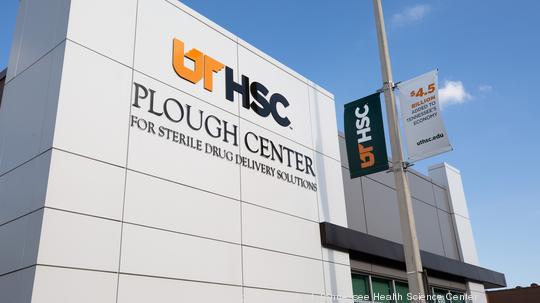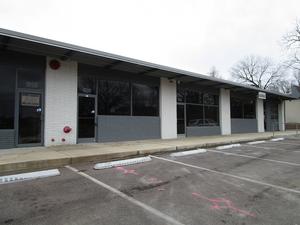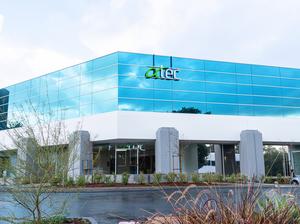
Revotek plans to print blood vessels right here in Memphis using a 3D printer.
Yes, you read that right: Blood vessels.
How do they do that? With a bioprinter Revotek developed plus stem cells.
Still awaiting human trials, Revotek’s technology nonetheless has the potential to revolutionize medicine, hence the name, Revotek.
Chengdu connection
Revotek’s local operations involve an international connection, a local university’s upstart regenerative medicine focus, and, as with most things Memphis, the power of the FedEx network.
The pipeline from Chengdu, China, to Memphis, which brought Revotek and its technology here began with a professional relationship.
Steven Goodman, Ph.D., vice chancellor for research at University of Tennessee Health Science Center (UTHSC), has known Y. James Kang, Ph.D., for more than 15 years.
Kang is cofounder and chief scientific officer of Revotek. In 2017, Goodman brought Kang to Memphis to learn about UTHSC, the bioscience infrastructure here, and FedEx Corp.’s key shipping capabilities.
That experience led to Revotek selecting UTHSC and its Memphis Institute of Regenerative Medicine (MIRM) as its U.S. operations base. Kang is now executive director of MIRM and a professor at UTHSC. And, Goodman serves on Revotek’s advisory board.
“Memphis, as the headquarters of FedEx, enables us to deliver 3D bioprinted blood vessels to any corner of the United States within two to three hours,” said Dun Liu, Ph.D., partner and chief research officer at Revotek. “We don’t have to place many [production] centers in the U.S. Instead, we can have a deep collaboration with UTHSC and FedEx.”
Building by bioink
Revotek researchers in China developed a method where isolated stem cells from fat tissue are cultured and prepared as a new type of bioink called biosynspheres.
The company’s 3D bioprinter then stacks the bioink thereby creating a blood vessel. That bioink structure is then covered in a prosthetic vascular graft.
Such hybrid vascular grafts have been created from rhesus monkey stems cells and surgically replaced rhesus blood vessels successfully.
UTHSC’s Plough Center for Sterile Drug Delivery Solutions in the Medical District is set to be the U.S. production facility for such blood vessels, with a goal of embarking on human trials for the Revotek blood vessels. Opened in 2018, the Plough Center is a state-of-the-art Federal Drug Administration (FDA)-certified facility.
Revotek’s technology is a personalized cell therapy, and as such, timing is critical. Cells are extracted from a patient, cultured, and then the blood vessel is produced. Delivery of the vessel graft to a patient should occur within hours via FedEx.
Liu noted such grafts hold the potential to not just treat late-stage symptoms of vascular diseases, such as clogged arteries, but instead halt disease progression via newly produced vessel sections.
“Revotek’s technology and research approach has placed them at the forefront of the application of regenerative medicine to improve human health,” Goodman said.
Travel then trials
As with most plans in 2020, the pandemic intervened, blocking Revotek’s progress toward human trials.
Revotek prepared research data per FDA guidance given in 2018 and was prepared to submit for FDA approval of human trials in 2020. But, COVID curbed travel to and from China.
The company’s technology was developed in Chengdu and research conducted at the West China Medical Center of Sichuan University. Key employees were not able to get work and business travel visas due to the U.S. consulate in Chengdu being closed.
Still, Revotek’s bioprinted blood vessel technology has progressed in China but given pandemic priorities, human clinical trials await final clearances there, too.
“The application with [China’s] National Health Commission is currently in the final stage [and] once it’s passed, the clinical trials [will start] immediately,” Liu said.
And once travel restrictions are lifted, Revotek’s staff will return to Memphis to advance its goal of FDA trials.
“FDA approval and the beginning of these clinical trials are anticipated in early 2022,” Goodman said. “The trials will be contracted by the Clinical Trials Network of Tennessee (CTN2) and will utilize the CTN2 statewide network of hospitals and practice plans."









